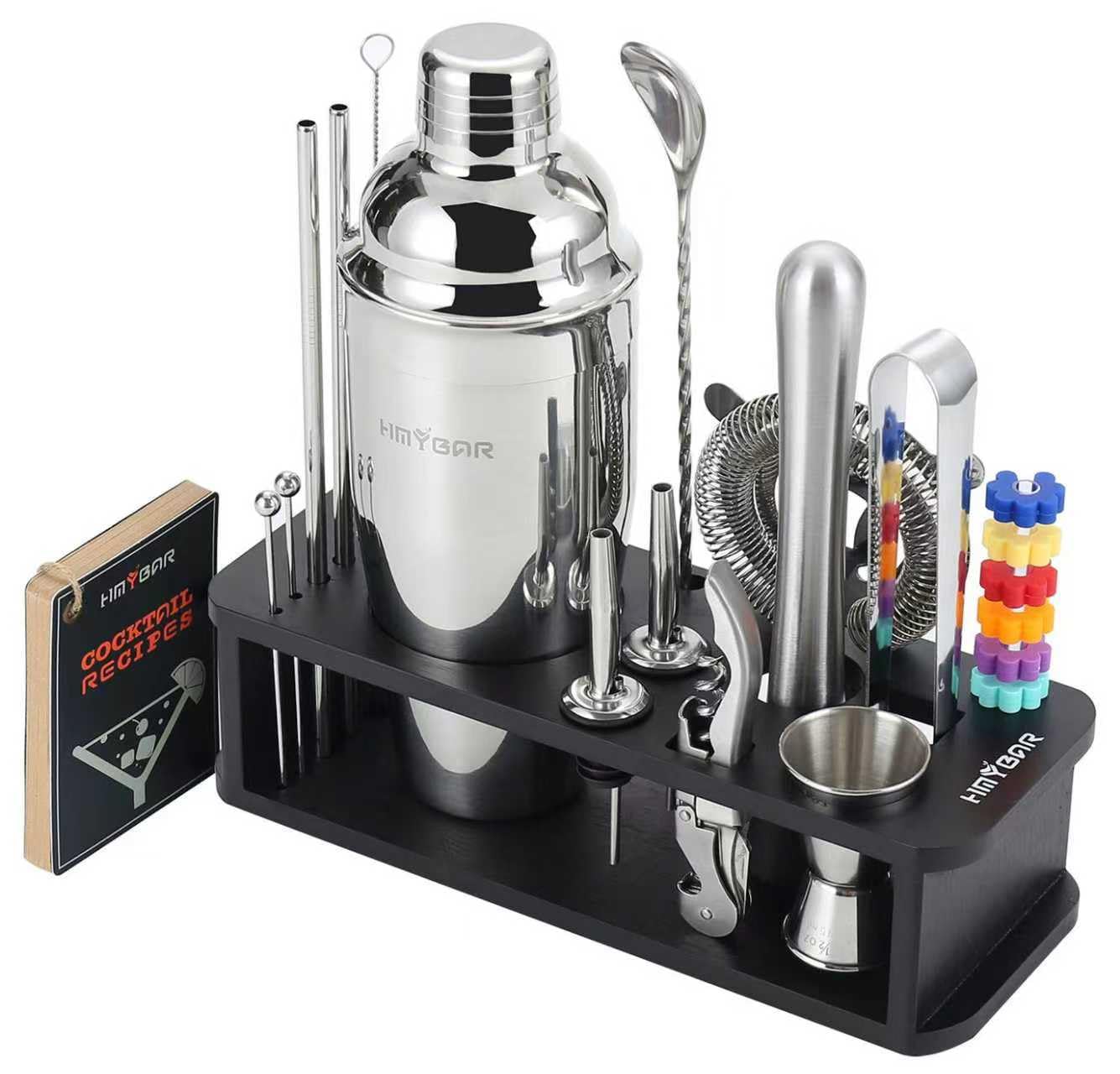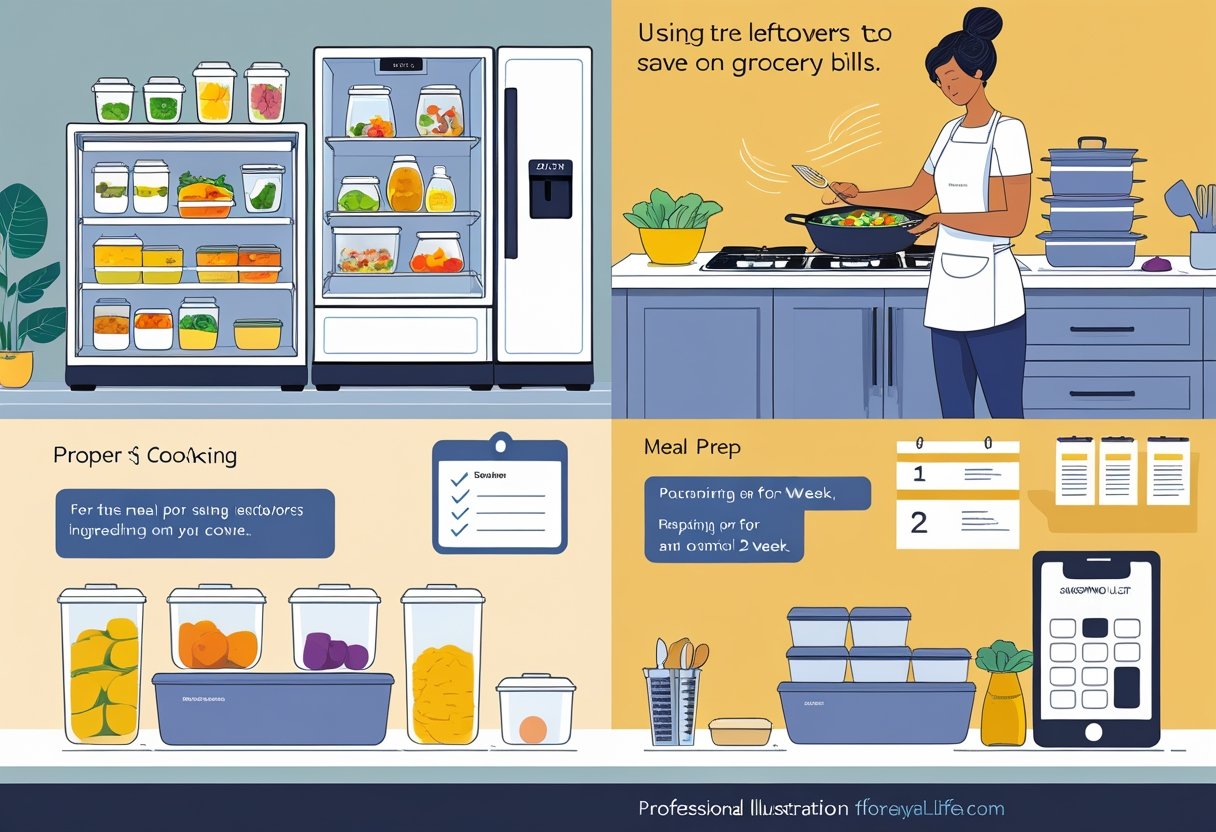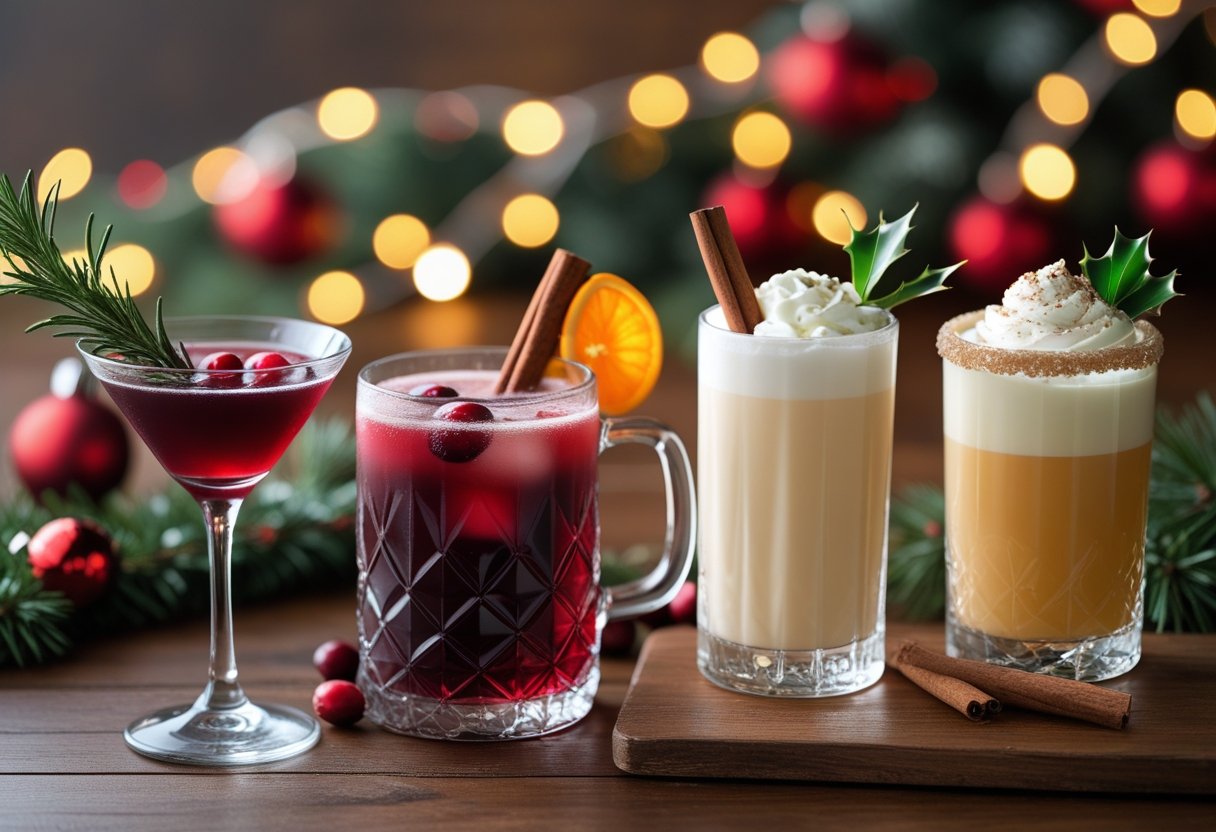Crafting cocktails at home has shifted from an occasional hobby to something a lot more people are doing to enjoy good drinks without splurging at bars.
4 Cocktails You Can Make At Home To Save Money: Easy Recipes That Cut Bar Costs
Making cocktails at home? It's a smart move if you want good
drinks without the sticker shock of a bar tab. With just a few basics
and some simple moves, you can whip up something that tastes like it
came from a pro—at a fraction of the price you'd pay out.
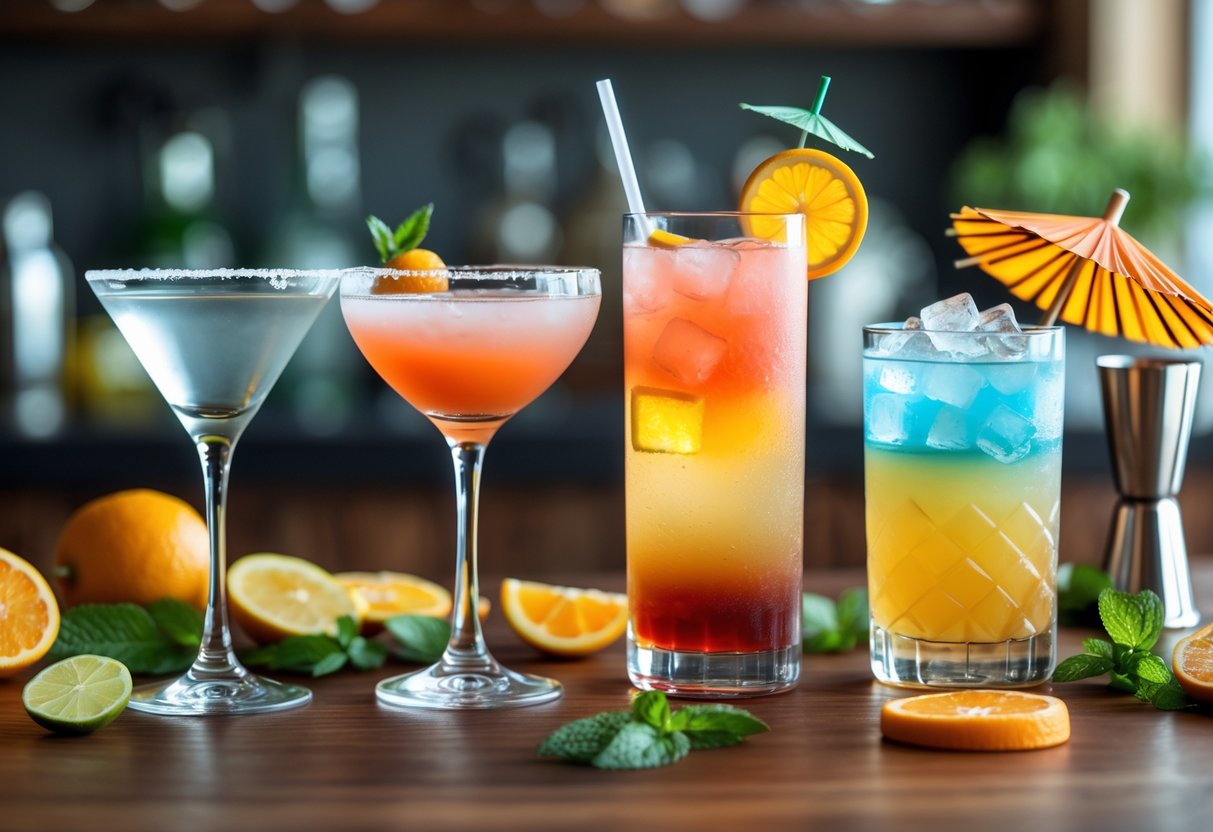
Mixing classic cocktails at home can slice your drink costs by as much as 75% compared to what bars charge. The trick is to pick recipes that call for easy-to-find stuff and don't need fancy gear.
Think mojitos, gin and tonics—nothing fussy, just solid drinks that taste great and don't ask for a ton of effort or expensive ingredients.
1) Classic Mojito
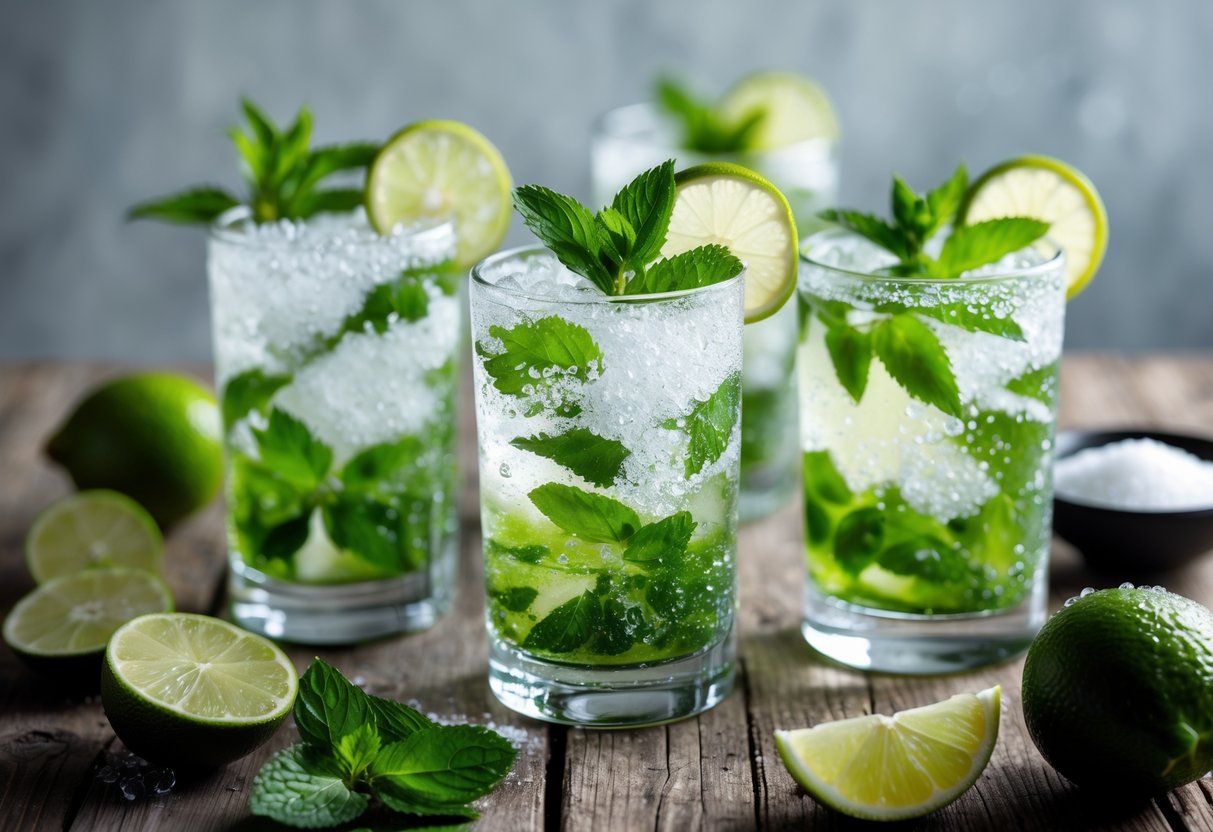
The mojito is a budget-friendly classic. You only need five ingredients, and honestly, most of them are probably already in your kitchen or easy to snag at any store.
Skip the bar markup and make your own: white rum, fresh mint, lime juice, sugar, and club soda. That's it.
Here's how I do it: Gently muddle 8-10 mint leaves with 2 teaspoons of sugar in a glass. Squeeze in the juice of half a lime and muddle a bit more.
Fill the glass with ice, pour in 2 ounces of white rum, then top with club soda. Stir it up and throw in a mint sprig and a lime wedge for looks.
Don't go wild with the muddler—light pressure brings out the mint oils without turning things bitter. Over-muddling ruins it fast.
Fresh limes and perky mint make a world of difference here. The whole drink clocks in at about 150 calories, so it's not a heavy hitter either.
Honestly, this is my go-to for summer or when I just want something crisp at the end of the day.
2) Whiskey Sour

The Whiskey Sour is about as easy as whiskey cocktails get. Three ingredients, no weird stuff, and you can find everything at any decent grocery store.
Bourbon's my pick for its sweetness, but rye or even a blended scotch can give you a spicier or more malty twist. Play around if you want.
Fresh lemon juice is non-negotiable, though. Bottled just doesn't cut it—the acidity balances the whiskey way better.
Simple Whiskey Sour Recipe:
- 2 oz whiskey
- 1 oz fresh lemon juice
- 0.75 oz simple syrup
- Ice
- Lemon wheel for garnish
Throw everything except the garnish into a shaker with ice. Shake it hard for about 15 seconds. Strain into a rocks glass over fresh ice or go fancy and use a coupe glass.
If you want, add an egg white for a frothy top, but honestly, it's optional. I skip it most of the time.
At home, your whiskey sour runs $2-3 a glass, not the $8-12 bars ask for. Plus, the ingredients keep well, so you can make these whenever the mood strikes.
3) Ranch Water

Ranch water might be the easiest cocktail on this list. Hailing from Texas, it's just three things—no shaking, no gadgets.
Grab tequila, fresh lime juice, and sparkling mineral water. Blanco tequila keeps it classic, but if you want a deeper flavor, try reposado.
You can make a bunch of these for what one would cost at a bar. The ingredients are everywhere—liquor store, supermarket, you name it.
Basic Ranch Water Recipe:
- 2 oz tequila blanco
- 1/2 oz fresh lime juice
- 4-6 oz sparkling mineral water (Topo Chico if you can find it)
- Lime wedge for garnish
Fill a highball with ice, add tequila and lime juice, then pour in the sparkling water. Stir gently. Lime wedge on top, done.
No need to shake or fuss—just build it right in the glass and hand it over. It's that easy.
This one's perfect for groups, too. You can scale up a pitcher in no time, and the crisp, clean taste usually wins everyone over.
4) Gin and Tonic

The gin and tonic is a home bar staple. Two main ingredients, and you're in business—cheap, easy, and always good.
Making these at home costs way less than what bars charge, and the stuff you need lasts ages in your cupboard or fridge.
It's also super customizable. Different gins bring all sorts of flavors—classic juniper, cucumber, even floral notes if you're feeling fancy.
Simple Gin and Tonic Recipe:
- 2 oz gin
- 4-6 oz tonic water
- Ice cubes
- Lime wedge for garnish
Fill a highball with ice, pour in gin, then top with tonic. Give it a gentle stir and finish with a lime wedge.
Adjust the gin-to-tonic ratio to taste. More tonic if you want it lighter, less if you're after a punchier gin flavor.
Honestly, this drink works any time of year, but it's especially great when it's hot out. The gin's botanicals and the tonic's bitterness balance each other out, and you save a bundle over bar prices.
Essential Tools and Ingredients for Home Mixology
If you want to get into home mixology, a few basic tools and some smart ingredient choices go a long way. The right gear lets you mix drinks right, and picking versatile ingredients keeps costs down and options up.
Basic Barware Every Home Bartender Needs
A cocktail shaker is where you start. Boston shakers give you that pro feel, but cobbler shakers are easier for beginners since they've got a built-in strainer.
Jiggers help you measure so you don't end up with weirdly strong or weak drinks. The double-sided ones (1 oz and 2 oz) work best for most recipes.
A fine-mesh strainer keeps ice chips and pulp out of your glass. Hawthorne strainers pair well with Boston shakers, but cobbler shakers usually have one built in.
Bar spoons are surprisingly handy. Their long handles reach into tall glasses, the twist helps you stir smoothly, and the flat end can muddle herbs or fruit if you don't have a dedicated muddler.
A muddler is a must for smashing herbs or fruit—think mojitos or old-fashioneds. Wood ones are best, since they won't scratch your glass or leave a metallic aftertaste.
Basic glassware rounds out your kit:
- Highball glasses for mixed drinks
- Rocks glasses for spirits neat or on ice
- Coupe glasses for cocktails served up
Budget-Friendly Ingredient Tips
Base spirits don't need to be top-shelf. Go for versatile picks like vodka, gin, white rum, and bourbon—these cover most classics without breaking the bank.
Simple syrup is way cheaper if you make it yourself. Just mix equal parts sugar and hot water for the standard kind, or double the sugar for a richer version.
Fresh citrus beats bottled juice every time and usually costs less. Lemons and limes keep for weeks if you store them right and work in tons of recipes.
Bitters give you a lot of bang for your buck. Angostura is a classic for dozens of drinks, and orange bitters are great for whiskey cocktails.
Dry and sweet vermouth open up martinis, manhattans, and negronis. Once opened, stick these in the fridge—they'll last a lot longer than regular wine.
Maximizing Flavor and Savings
If you want to save even more, focus on fresh, seasonal ingredients and make your own mixers when you can. You'll spend less and your drinks will taste better—win-win.
How to Use Fresh and Seasonal Produce
Seasonal fruits and herbs taste best and usually cost less than out-of-season or imported options. Hit up your local farmers market or grocery store for deals on whatever's in season.
Spring is great for strawberries and mint—perfect for mojitos or daiquiris. In summer, peaches, berries, and basil are everywhere and cheap.
Seasonal Produce Calendar:
- Spring: Strawberries, mint, rhubarb
- Summer: Peaches, berries, watermelon, basil
- Fall: Apples, pears, cranberries, rosemary
- Winter: Citrus fruits, pomegranate
Try growing fresh herbs on a windowsill if you can. A small mint plant costs less than buying packaged herbs over and over.
When fresh fruit gets pricey, frozen works as a solid backup. It blends well and often costs less than fresh—plus, it keeps for ages.
DIY Syrups and Mixers
Simple syrup barely costs anything if you make it at home. The basic recipe? Just equal parts water and sugar, boiled until everything's dissolved, then cooled down.
Basic Simple Syrup Recipe:
- Combine 1 cup water and 1 cup sugar.
- Bring to a boil, stirring until the sugar melts in.
- Let it cool fully before you stash it in the fridge.
If you want to get fancy, you can make flavored syrups with the same base. Toss in ginger, vanilla, or fruit right as it's boiling—suddenly, you've got a custom mixer.
Fresh citrus juice? Always better than the bottled stuff, and honestly, it's cheaper per drink. One lemon usually gives you 2-3 tablespoons, which covers a few cocktails easily.
If you're feeling ambitious, try homemade mixers like ginger beer or tonic water. They're a bit of work, but if you make cocktails often, you'll save a lot—and you can prep a big batch to last a couple weeks.
Most households toss out hundreds of dollars in food each year just because there's no plan for what's already in the fridge. Learning how to utilize leftovers can shrink your grocery bill and keep less food headed for the trash.
The holiday season's here and let's be honest, gatherings deserve drinks that go beyond the usual. If you know how to whip up a few signature Christmas cocktails, you'll look like the host who actually knows what they're doing and your guests will probably remember your drinks more than your playlist.

